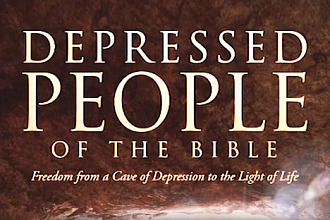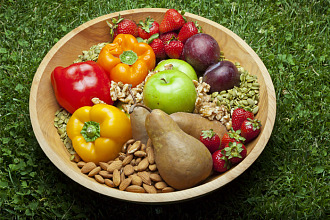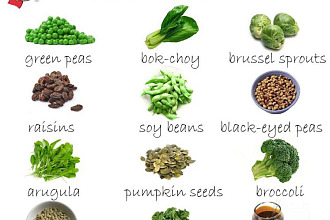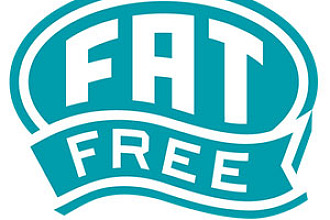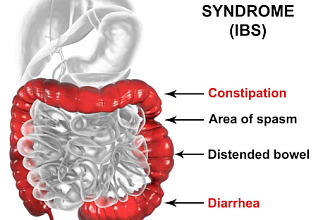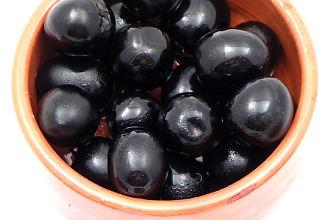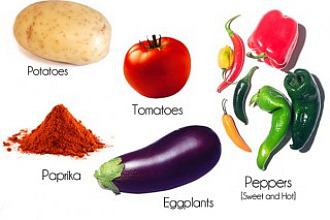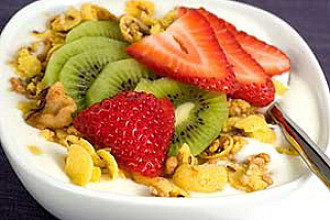Do you wake up on an installment plan? Do you really not surface until you have another coffee break? Are you out-of-sorts? Downright grumpy? You can improve your mood by changing the foods you eat. How?
Plant foods to the rescue!
Enjoy a plant-based diet, including a wide variety of non-starchy vegetables, whole fruits, nuts, and whole grains. Plus, complex carbs are loaded with fiber that enables your blood sugar to stay within normal limits. It is fine to have a potato or corn; just remember ½ cup of starchy food comprises a serving. When combined with a variety of foods, veggies, legumes, and healthy fats, even a serving of starch at a meal can help to satisfy endorphins and/or serotonin needs.1 Legumes are great because they not only provide carbohydrates, but protein, which helps us to keep alert and avoid blood sugar crashes. Low carbohydrates diets may reduce the brain's ability to make serotonin. Without this neurotransmitter, a positive outlook and self-control are hard to achieve.
Proteins provide amino acids that make brain chemicals that help you to think. Eating excessive protein, however, can reduce your brain's ability to make serotonin. Legumes, whole grains, and nuts are good sources of cholesterol free protein. An optimally functioning front brain is essential for judgment, impulse control, and will power. Eating meat depresses the electrical activity in the front brain.2 Then, too, when mixtures of animal protein and fats (for example, from a pizza) enter the stomach, they can form toxins (biogenic amines). One such example is the conversion of tyrosine to tyramine. Tyramine changes the way the brain responds to a brain chemical known as norepinephrine. Tyramine acts upon the nervous system so that it becomes overstimulated and develops a heightened sensitivity to stress. Irritability results.3
Don't Eat Western.
The typical western diet, high in fat and sugar/high fructose corn syrup promotes inflammation inside the brain and elsewhere in the body. Depression has been linked to inflammation. Additionally, if this diet is consumed frequently, the ability to think and remember gradually deteriorates and can contribute to frustration. Go easy on the sugar and never eat it on an empty stomach. Rapid rise and fall of blood sugar decreases the ability of the brain to focus. Sugar is also bad news for individuals who suffer from chronic pain. Sugar reduces one's threshold to pain so that he/she experiences pain sooner.4 It is true that sugar temporarily increases pleasure-linked endorphins in the brain, but walking will do that much more safely and provide cardiovascular benefits as well.
Caffeine Is Not Your Friend.
Caffeine is not your friend. Caffeine initially acts as a stimulant, then as a depressant. Studies show that caffeine reduces the threshold for irritability and anger.5 Caffeine magnifies the effect of stress on the body. Long-term use of caffeine lowers the serotonin level in the brain and interferes with metabolism of G.A.B.A., a brain chemical that helps us to keep calm and focus under stress.
Check your diet for adequacy.
Vegans should have their vitamin B-12 level checked. As we age, some of us will lose the ability to absorb this vitamin. Even low normal levels of this vitamin can produce a host of mental problems. If one does not eat greens, he might develop a folic acid deficiency, which impacts the mood negatively. Deficiency in vitamin D can also contribute to depression. Vitamin D supplementation may help ease away the wintertime blues.6 An inadequate intake of omega-3 fats promotes depression. Flaxseed, walnuts, and spinach are good sources of this fatty acid. While solid animal fats and hydrogenated vegetable fats encourage inflammation inside the brain, omega-3 fats protect it. Monounsaturated fats from olives, avocados, and nuts also help to protect the brain. If you protect your brain, not only will you be more pleasant and easier to work with now, but also in your elderly years.
Diet is only one link in the chain of health, but an important one. Persistent mood problems may indicate some type of hormonal imbalance or mental illness. So consult with your doctor!
Contributed by wildwoodhealth.org
References
1. Baldwin, Bernell E., "Lifestyle and Brain Physiology", Wildwood Lifestyle Center, 2005. ↩
2. Somer E, Food and Mood, Henry Hold Reference Books, New York, 1995 ↩
3. Baldwin, B.E., Griffin, Vikki, Kissinger, Evelyn, Food for Thought 2nd edition, Lifestyle Matters, pg 108 ↩
4. Baldwin, Bernell E., "Use and Abuse of the Front Brain", Wildwood Lifestyle Center, 2005 ↩
5. Gupta, B.S. (editor) and Gupta, Uma, Caffeine and Behavior: Current Views and Research Trends,CRC Press.↩
6. Gloth, F.M., Vitamin D vs. broad spectrum phototherapy in the treatment of seasonal affective disorder. J Nutr Health Aging. 1999;3(1):5-7. ↩
Originally found here








